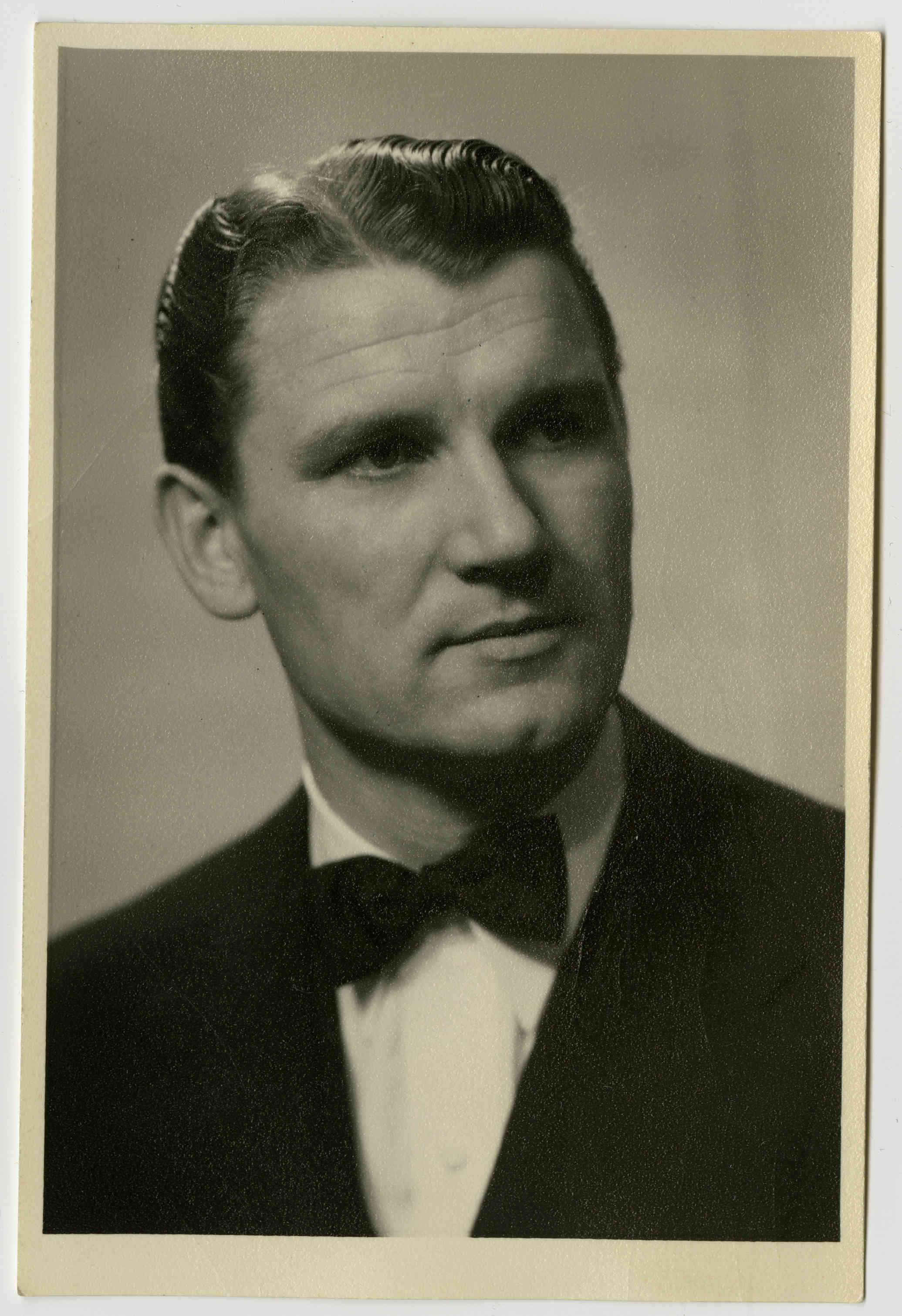
Harri Asi
Harri Asi (29 August 1922 – 15 January 2009) was a poet and prose writer.
Asi was born in Valga. He completed the Valga gymnasium in 1942 and entered the Faculty of Agriculture at the University of Tartu. In 1943, he was recruited to the German army. Harri Asi was wounded at the front and was a prisoner of war in Belgium in 1945–1946. Thereafter, he was at Stubben refugee camp in Germany. In 1951, he settled in Canada where he studied languages, literature and art history at the University of Toronto from 1955–1957. Asi worked in Toronto as an electrical engineer at an engineering company. In 1979, he moved to Calgary where he lived to the end of his life. His ashes were strewn into the Baltic Sea in June 2009.
Asi said that he began to write poetry at the prison camp in Belgium to prevent mental numbness. His creation includes six poetry collections in Estonian and one in English and one novel.
The first poetry collections Sõdalane värsivibuga (‘Warrior with a Bow of Verses’, 1950), Tuisusõitja (‘Driving in the Blizzard’, 1952) and Kui valgus kaob (‘When the Light Fades’, 1954) feature realistic memories and impressions. In the poetry collection Heiastused (‘Reflections’, 1959), searches continue in a more abstract style. In the poetry collection Epigramme ehk Kaks grammi eepikat (‘Epigrams or Two Grams of Epic’, 1960), Asi criticises the refugee policy. The poetry collection with the author’s illustrations, Öölille laul (‘Night Flower’s Song’, 1971) expresses search for peace of mind in Oriental religious philosophy. This collection contains surrealist motifs. The poet’s favourite image is the sea.
The modernist novel Pärast plahvatust (‘After the Explosion’, 1967) deals with the frustration of Estonians who fought on the German side in World War II and reaches the negation of war and violence. The novel is a frame narrative that consists of five independent short stories. The stories are linked by the character of Lieutenant Enno Meelismaa, a central observer who can be considered the writer’s alter ego.
Asi’s original poems in English were published in the collection Verses from the Unsung.
Harri Asi was awarded the Henrik Visnapuu Literature Prize for the novel Pärast plahvatust in 1968 and for the poetry collection Öölille laul in 1972.
L. P. (Translated by I. A.)
Books in Estonian
Poetry
Sõdalane värsivibuga. Göteborg: Orto, 1950. 93 lk.
Tuisusõitja: teine kogu luuletusi. Toronto: Orto, 1952. 62 lk.
Kui valgus kaob: kolmas kogu luuletusi. Toronto: Orto, 1954. 80 lk.
Heiastused: neljas kogu luuletusi. Toronto: H. Asi, 1959. 110 lk.
Epigramme ehk Kaks grammi eepikat. Toronto: Libra, 1960. 23 lk.
Öölille laul. Toronto: Libra, 1971. 116 lk.
Kogutud luuletused. Tallinn: Eesti Keele Sihtasutus, 2005. 351 lk.
Novels
Pärast plahvatust. Toronto: Libra, 1967. 191 lk.
Poems in English
Verses from the unsung. Calgary: H. Asi, 2002. 168 lk.



